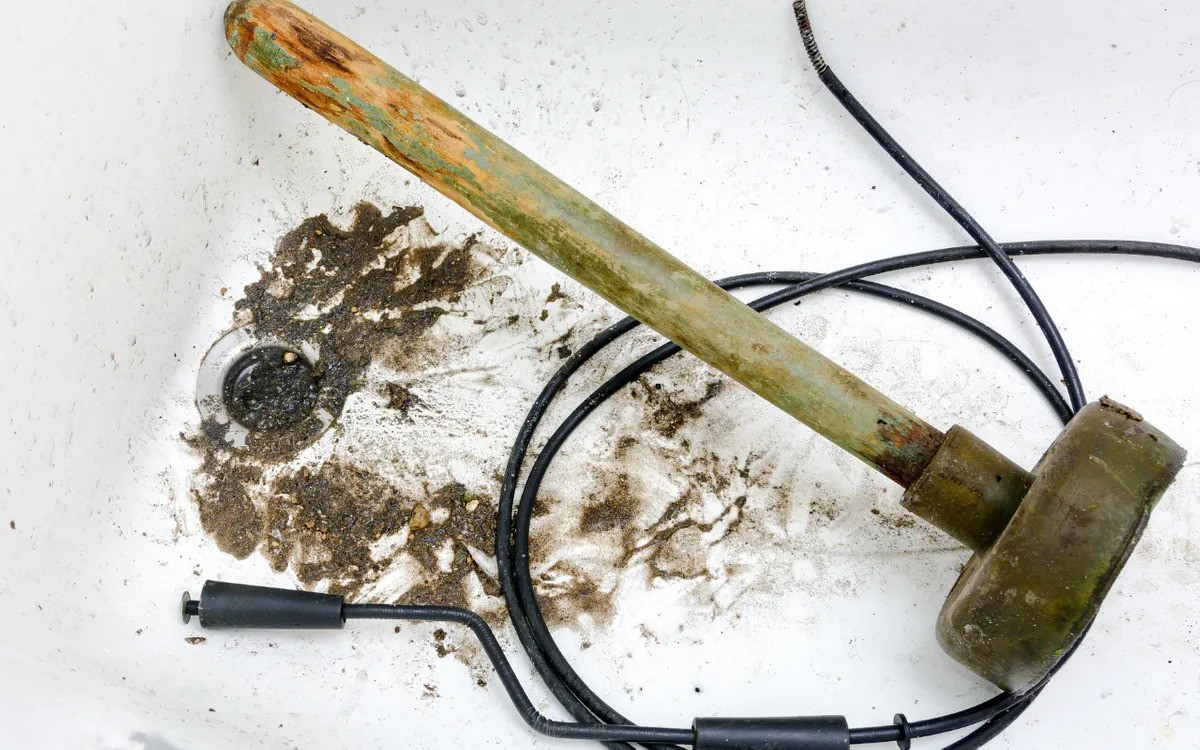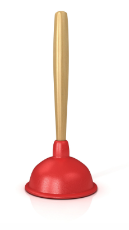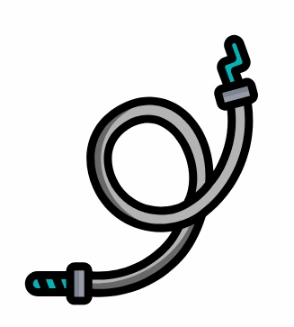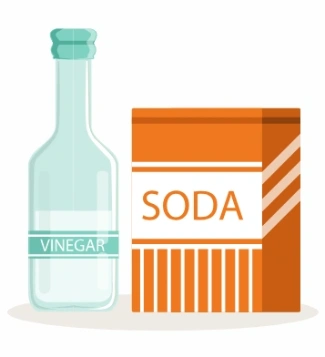Do Liquid Drain Cleaners Damage Your Pipes?
Ok, so, your sink’s full, toilet’s backing up, and you’ve got a bottle of liquid drain cleaner under the sink that you can unleash. But, before you go any further, let’s have a little forethought: Do liquid drain cleaners actually damage your pipes?!
Now, we’ve all been in this situation, and we’ve all wondered that. But, as much as you want whatever’s blocking up your drain gone, the last thing you need is to swap a slow draining pipe for an expensive plumbing bill!
So, what’s really in those liquid drain cleaner bottles, how do they (mostly) work, and will they simultaneously be attacking your plumbing?! We’ll look at when they may be ok to use, and, more importantly, when you should shove the bottle back in the cupboard, grab a plunger, and call a professional.
What Do Drain Cleaners Contain?
Right, so we've established it's potent. But what are we actually pouring down our drains? Let's break it down, and don’t panic, *no chemistry degree required*!... The main players in the drain-cleaning game are usually strong alkaline or acidic chemicals.
🧪 Sodium Hydroxide (NaOH)
NaOH is a serious heavyweight! It’s an alkaline compound that basically dissolves organic matter like hair and grease. It creates heat as it works, which helps break down the clog. But, and this is a BIG but, that heat can also damage your pipes if it gets too intense.
🧪 Hydrochloric Acid (HCl)
HCI is more on the acidic side, and it’s seriously powerful. Although it’s a staple in industrial-strength cleaners, you’ll also find it in some of the more aggressive drain cleaners. It’s great at dissolving clogs, but it’s also extremely corrosive, and can eat away at metal pipes like they’re made of butter!
🧪 Sulfuric Acid (H₂SO₄)
This is another super corrosive acid and can cause you serious damage if you’re not wearing correct protective equipment. Although you can get domestic liquid drain cleaners containing sulphuric acid, you’ll definitely need to be extremely careful when handling it, and most definitely not splashing it around your bathroom!
🧪 Additional Extras
Some drain cleaners may also contain other chemicals like sodium hypochlorite (bleach) or surfactants, which helps the cleaner to spread and penetrate the clog.
These chemicals are designed to break down clogs, but they can also break down your pipes, especially if they're left sitting in there for too long. That's why it's so important to follow the instructions on the label carefully, and to use these chemical cleaners sparingly.

How Liquid Drain Cleaners Affect Your Pipes
So, let’s get down to the crux of it: what effect can liquid drain cleaners have on your pipes? Good question, and the answer isn’t all that pretty!
🧴 Pipe Corrosion
The acids and alkalis that we discussed are corrosive, and slowly eat away at the inside of your pipes. Over time, this corrosion can weaken your pipes, especially if they’re metal-based, and lead to leaks and total pipe collapse.
🧴 Heat Warping Pipes
While they word, many drain cleaners actually create heat, which helps break down the clog. But, this heat can cause your pipes to soften and warp, especially if they’re made from PVC.
🧴 Chemical Reactions
Even if you’re fully aware of the ingredients in the drain cleaner you’re putting into your drain, you can’t be aware of what’s in your pipes. It could be some residual cleaning products, or even the clog itself, that could cause a chemical reaction, and as we already know, this generates more heat, which puts more stress on your pipes!
🧴 Pipe Weakening
The major problem is that all of these reactions, and resulting weakening of the pipes, happens where you can’t see it. With constant addition of chemical drain cleaners, your pipes will be weakening, until one day they spring a leak.
🧴 From Clog to Sludge
Sometimes, part of the clog may not be totally dissolved and cleared by the drain cleaner, but instead, it can change into thick, sticky sludge.
Risks of Liquid Drain Cleaner for Different Pipe Materials
Cast Iron Pipes
Cast iron pipes are certainly tough, but they're also susceptible to corrosion. The strong acids in drain cleaners can speed up the rusting and corrosion processes, leading to more leaks and cracks.
PVC Pipes
These are the plastic pipes that are found in newer homes, and tend to be more resistant to corrosion than metal pipes. However, when the drain cleaners generate heat, PVC pipes can soften and warp, leading to sagging, leaks, and complete pipe failure.
Copper Pipes
Copper pipes are durable and resistant to corrosion but, the acids in drain cleaners can cause pitting (tiny holes) to form on the pipe. Over time, this will obviously weaken the pipe, and lead to leaks.
Basically, it's a compatibility issue. So, before you pour that bottle down the drain, consider what kind of pipes you're dealing with. It could save you a lot of headaches (and plumbing bills) down the line.
Are Liquid Drain Cleaners Safe for Sinks Drains?
When a sink gets clogged, it’s easy to reach straight for the liquid drain cleaner. But, are they actually safe for your sink drain? Spoiler: sometimes, it's not always a good idea.
For minor, organic clogs, maybe, if you follow instructions precisely and ventilate well. But for older pipes, frequent use, solid obstructions, porcelain sinks, or mixed chemicals? Absolutely not. They'll likely cause more harm than good. Safer options like plungers or baking soda are usually better.
Treat liquid drain cleaners as a last resort, and when in doubt, call a professional plumber.
Liquid Drain Cleaners for Toilet Blockages
If you're facing a very minor clog in your toilet pipe, think of soft organic stuff, and you have a toilet-specific cleaner, maybe you can carefully try it. But that's a big "maybe", and you're still taking a risk!
Older toilets, especially those porcelain beauties, are incredibly susceptible to damage. Those harsh chemicals can lead to cracks, and a permanently ruined finish. And don't even think about using them on solid obstructions like toys, wipes, and basically anything non organic. They won't dissolve, just sit and create more problems. Plus, toilets have wax rings and seals, crucial for preventing leaks, and those chemicals can eat right through them.
Safer options like a good plunger, a toilet snake (auger), or even hot (not boiling) water are almost always the better choice. Toilets are awkward, and a small clog can quickly escalate into a plumbing nightmare. So, treat liquid drain cleaners as a last ditch, risky option, and remember, your toilet will thank you for a more gentle approach.
Safe Alternative to Liquid Drain Cleaners
There are plenty of ways to tackle a clog without resorting to the heavy duty, chemical stuff. Safes options include:
 ✔️ Plunger
✔️ Plunger
 ✔️ Drain Snake
✔️ Drain Snake
 ✔️ Baking Soda & Vinegar (1:1 Ratio)
✔️ Baking Soda & Vinegar (1:1 Ratio)
When to Call a Professional Plumber
If you’ve tried everything, and that clog just won’t budge, then it’s time to call in the Pure Plumbing Professionals! It’s better to admit defeat than to make a small problem into a huge, expensive one.
You need a professional plumber for:
❌ Persistent Clogs
❌ Recurring Clogs (this could be a warning sign of a bugger issue)
❌ Slow Drains
❌ Sewer Line Issues
❌ Leaking Pipes
❌ Strange Smells, or Noises, From Your Pipes
Basically, if you're unsure, or if the problem seems beyond your DIY skills, don't hesitate to call Pure Plumbing. It's an investment in the long term health of your plumbing system and can save you from costly repairs down the road.
Prevention is Better Than Cure! Keeping Your Drains Clear
In summary, whilst liquid drain cleaners can offer a quick fix for minor clogs, they often do more harm than good. Safer alternatives like plungers, snakes, or baking soda are almost always better. And remember, prevention is key!
When DIY fails, or you suspect a serious issue, don't hesitate: call our friendly team at Pure Plumbing Professionals on 02 8188 5339 or complete our online enquiry form today.

Resources:
NCH Asia - Drain Cleaner Chemical Formula
How Stuff Works - How Drain Cleaners Work
Poison Control - What's in Drain Cleaner?
